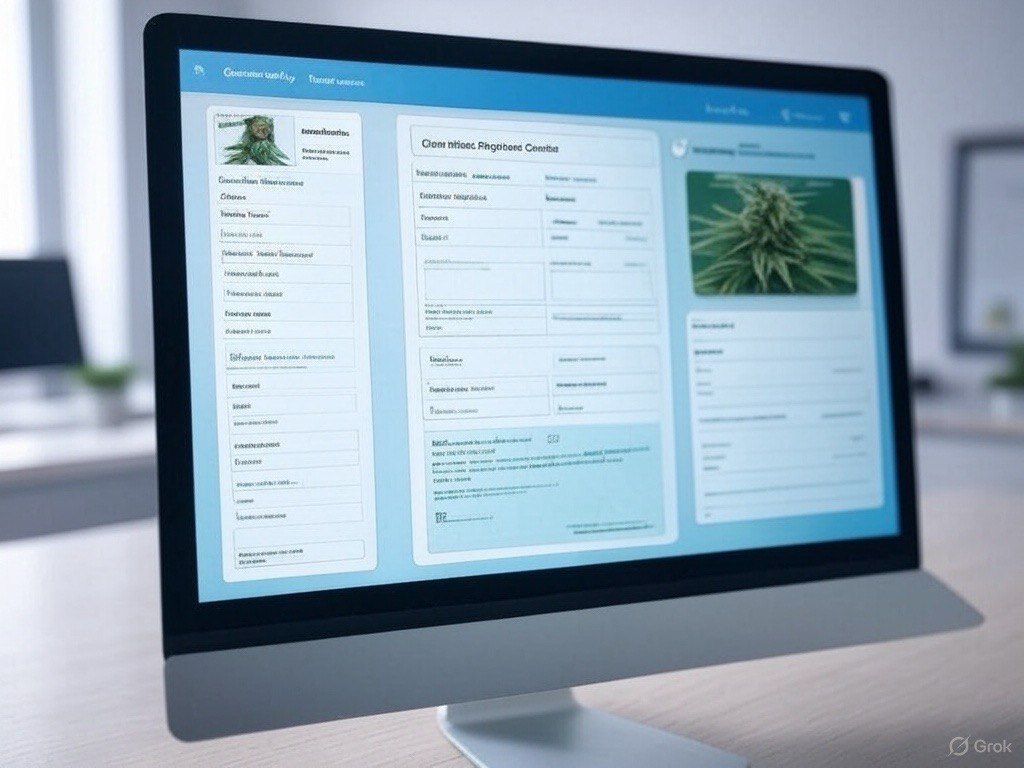Register with Your State Program for Medical Marijuana
Navigating the Application Process for Legal Access
Registering with your state or national medical marijuana program is a critical step to gaining legal access to cannabis for medical use. At Weedcoin, we’re here to simplify the process through the MediWeed Hub with irie vibes. In this article, we’ll guide you through registering with your state program, from application requirements to approval timelines. Whether you’re in the U.S., Canada, or beyond, understanding this process ensures you can access cannabis legally—let’s dive into the steps for registration!

Registering with a medical marijuana program varies by region, but the process typically involves submitting an application, providing documentation, and paying a fee.
Understanding the Registration Process
In the U.S., most states with medical cannabis programs require patients to register to receive a medical cannabis card, which allows legal purchase from dispensaries. Some states have an online portal for applications after obtaining a doctor’s recommendation. In Canada, patients register directly with a licensed producer, submitting a medical document from their doctor—no card is needed, but you’ll receive a registration number. In the UK, registration isn’t required, but patients need a private prescription, which can be costly. In Germany, doctors apply for approval on behalf of patients through a regulatory body, after which patients can fill prescriptions at pharmacies. Understanding your region’s process is key to a smooth application.
Application Requirements
To register, you’ll need to provide specific documentation. In many U.S. states, this includes your doctor’s recommendation (often uploaded by the provider), proof of residency (e.g., driver’s license or utility bill), a government-issued ID, and a recent photo for your cannabis card. Some states may also require proof of a qualifying condition, such as medical records showing chronic pain or epilepsy. In Canada, patients submit their medical document (specifying dosage) and ID to a licensed producer, with the process often completed online. In Australia, patients need approval from a regulatory body, requiring extensive medical records and a doctor’s application. Be prepared to provide all required documents to avoid delays—check your program’s website for a detailed list.
Application Fees and Costs
Most programs charge a registration fee, which varies by region. In some U.S. states, the fee ranges from $25 to $50, though low-income patients may qualify for waivers or reduced rates. In Canada, there’s no fee to register with a licensed producer, but patients may need to pay for doctor consultations ($100–$200) if not covered by insurance. In the UK, private prescriptions can cost £200–£500/month, with no formal registration fee but high overall expenses. Budget for these costs, and explore financial assistance options if needed—some programs offer discounts for veterans or those on public assistance.
Approval Timelines and Waiting Periods
Approval timelines depend on the region and application method. In the U.S., applications are typically processed within 1–4 weeks, after which patients receive their medical cannabis card via email or mail. Some states may take longer (up to 6 weeks) due to higher application volumes. In Canada, registration with a licensed producer is faster—often 1–2 weeks—allowing patients to order products online immediately after approval. In Germany, approval through a regulatory body can take 2–4 weeks, depending on the complexity of the case. Delays can occur if documentation is incomplete, so double-check your application before submission. Some programs offer temporary approvals, providing a short-term card while the permanent one is processed.
Renewal Requirements and Timelines
Medical cannabis authorizations often expire and require renewal. In the U.S., cards typically last 1–3 years, requiring a new doctor’s recommendation and a renewal fee. In Canada, medical documents from doctors must be renewed annually, and patients must update their registration with licensed producers. In Germany, prescriptions may need monthly renewals, depending on the condition and dosage. Set calendar reminders to renew on time, as lapses can interrupt access—patients like Michael had to plan ahead to maintain his pain management. Keep updated medical records to streamline the renewal process, ensuring continuity of care.
Practical Tips
- Visit your state program’s website to download the application and review requirements.
- Gather all documents (doctor’s recommendation, ID, proof of residency) before applying to avoid delays.
- Budget for fees—ranging from $25 to $50 in the U.S.—and check for low-income discounts or waivers.
- Expect 1–4 weeks for approval in the U.S.; contact the program if delays exceed the expected timeline.
- Set reminders to renew your card or registration—U.S. cards last 1–3 years, requiring a new recommendation.
Key Takeaways
- Registration is required in most regions, often through an online portal after a doctor’s recommendation.
- Applications need a recommendation, proof of residency, ID, and sometimes medical records, depending on the region.
- Fees range from $25–$50 in the U.S.; Canada has no registration fee but may involve doctor consultation costs.
- Approval takes 1–4 weeks in the U.S., faster in Canada (1–2 weeks), with temporary cards available in some states.
- Renewals are required every 1–3 years in the U.S., annually in Canada, to maintain legal access.













